Welcome
Summer is on its way! NCEO has been busy this spring. In this issue, we share some of what has been going on, and some of what NCEO will be doing in the next month. NCEO was pleased to be able to hold a couple of webinar conferences recently. One focused on the 1% cap on participation in the alternate assessment. The other, held in collaboration with the National Technical Assistance Center on Transition (NTACT), focused on the state-defined alternate diploma. Both of these webinars are highlighted in this issue. Also highlighted is a new NCEO Data Analytics, an interactive report that provides multiple ways of examining participation and performance data for students with disabilities. Also highlighted is a resource now available – Formative Assessment for Students with Disabilities. Finally, in this issue we look forward to future activities. You will find an article on the forum that will precede the National Conference on Student Assessment (NCSA), titled Text Readers for Everyone on All Tests – Getting a Handle on What This Means. It includes information on how to register for this event. Also, we provide a summary of all the sessions in which NCEO is participating during NCSA.
– Martha Thurlow, NCEO Director
1% Cap: NCEO Brief and Webinar Available
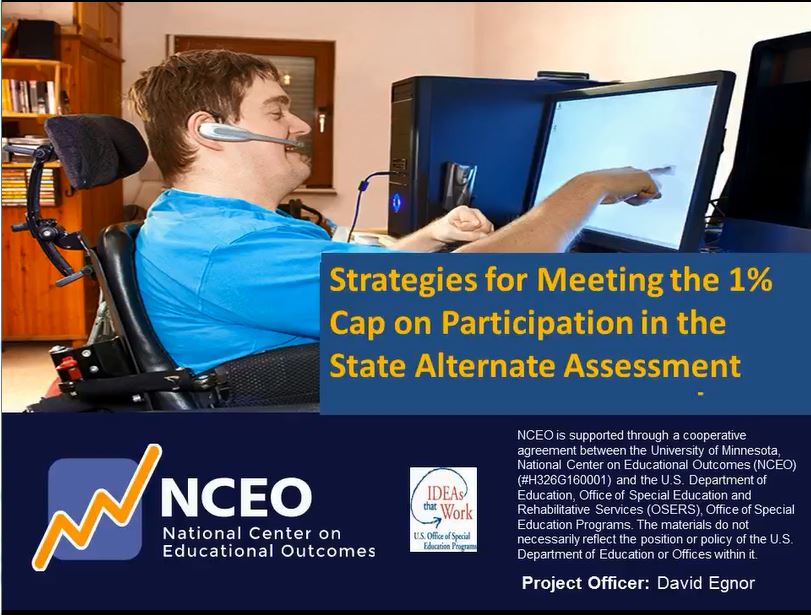 NCEO presented a webinar on April 27, 2017 on Strategies for Meeting the 1% Cap on Participation in the State Alternate Assessment, covering what the Every Student Succeeds Act (ESSA) says about the 1% cap on participation in the alternate assessment, the provisions in regulation for requesting a waiver from the 1% cap, and several strategies for meeting the 1% cap.
NCEO presented a webinar on April 27, 2017 on Strategies for Meeting the 1% Cap on Participation in the State Alternate Assessment, covering what the Every Student Succeeds Act (ESSA) says about the 1% cap on participation in the alternate assessment, the provisions in regulation for requesting a waiver from the 1% cap, and several strategies for meeting the 1% cap.
Recent Webinar on Considerations for State-Defined Alternate Diplomas
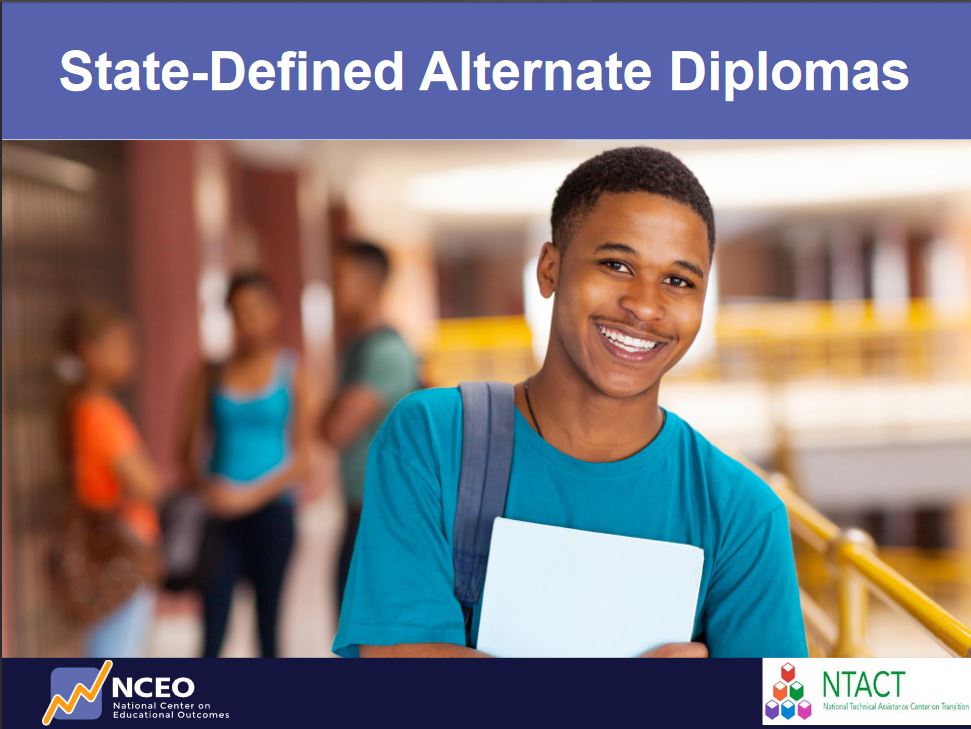 NCEO and the National Technical Assistance Center on Transition (NTACT) hosted a webinar on state-defined alternate diplomas for students with the most significant cognitive disabilities.
NCEO and the National Technical Assistance Center on Transition (NTACT) hosted a webinar on state-defined alternate diplomas for students with the most significant cognitive disabilities.
Customizable Online Report on Assessment Participation and Performance
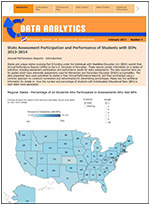 NCEO published the fifth Data Analytics report, State Assessment Participation and Performance of Students with IEPs, 2013-2014. The online interactive data report highlights the Annual Performance Report (APR) data for 2013-14 state-level assessment participation and performance results for students with IEPs.
NCEO published the fifth Data Analytics report, State Assessment Participation and Performance of Students with IEPs, 2013-2014. The online interactive data report highlights the Annual Performance Report (APR) data for 2013-14 state-level assessment participation and performance results for students with IEPs.
Formative Assessment for Students with Disabilities
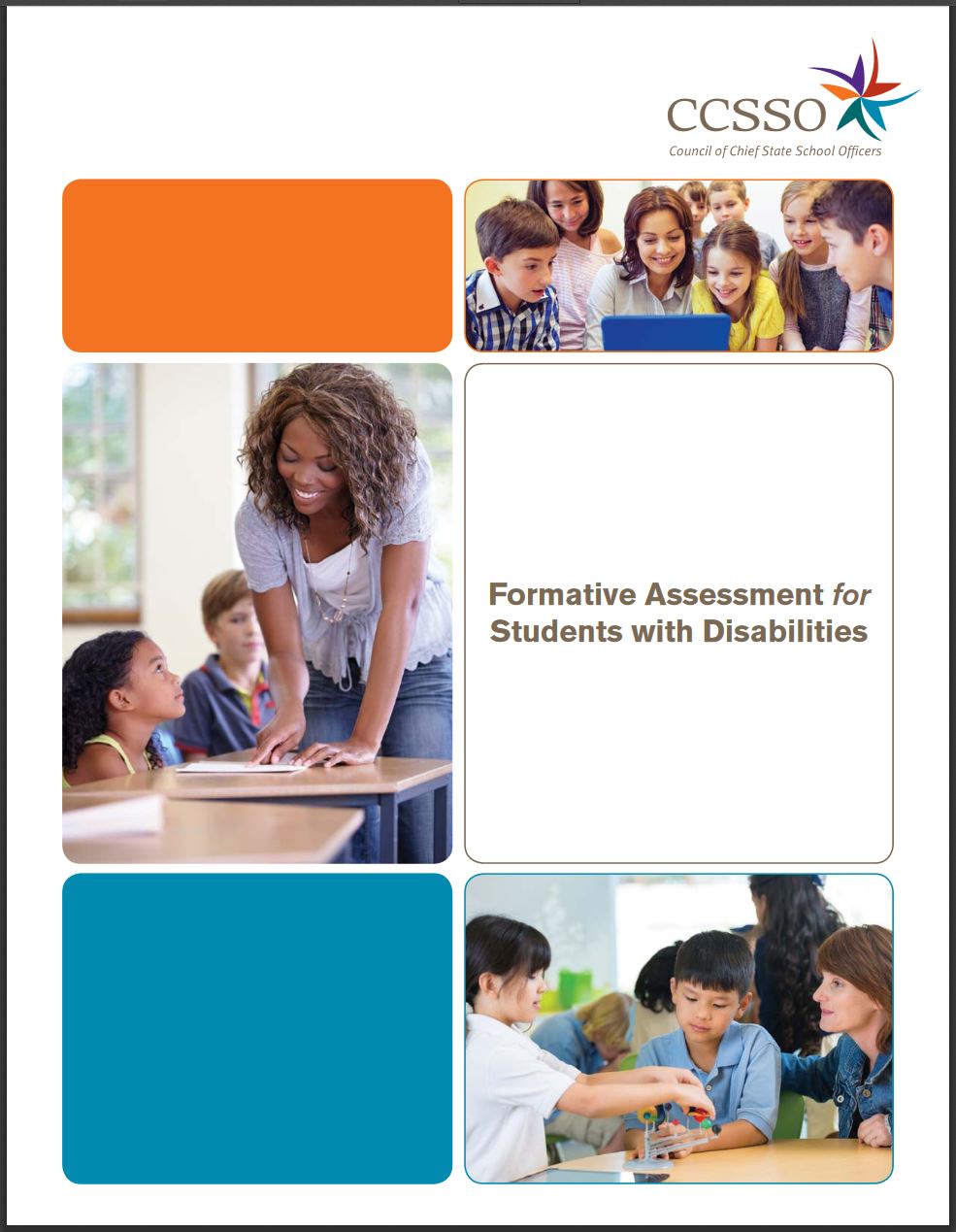 NCEO’s Sheryl Lazarus is the co-author of a resource, Formative Assessment for Students with Disabilities, that was recently published by the Council of Chief State School Officers (CCSSO). This report provides practical suggestions and information about how formative assessment can be used with all students, including students with disabilities.
NCEO’s Sheryl Lazarus is the co-author of a resource, Formative Assessment for Students with Disabilities, that was recently published by the Council of Chief State School Officers (CCSSO). This report provides practical suggestions and information about how formative assessment can be used with all students, including students with disabilities.
NCSA Pre-Conference Session: Text Readers for Everyone on All Tests
 Please join NCEO, the ASES SCASS, and the EL SCASS for a pre-session on June 27 at the National Conference on Student Assessment in Austin, Texas titled Text Readers for Everyone on All Tests – Getting a Handle on What This Means. This pre-session will bring together states, assessment vendors, and other educational stakeholders to address the need to develop clarity on the implementation of text readers.
Please join NCEO, the ASES SCASS, and the EL SCASS for a pre-session on June 27 at the National Conference on Student Assessment in Austin, Texas titled Text Readers for Everyone on All Tests – Getting a Handle on What This Means. This pre-session will bring together states, assessment vendors, and other educational stakeholders to address the need to develop clarity on the implementation of text readers.
NCEO at the National Conference on Student Assessment
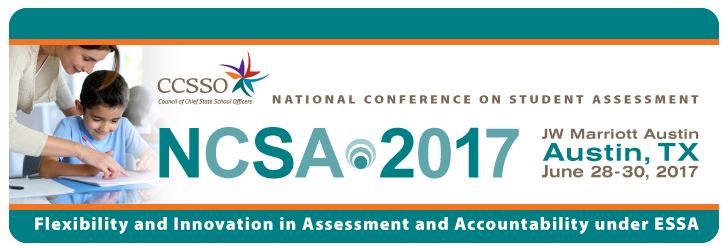 The 2017 National Conference on Student Assessment (NCSA) is the premiere forum for assessment practitioners to discuss what is happening in the real world of educational assessment—what is new, what is going on at the state and federal level, what works, and what does not. NCEO staff members will participate in several sessions.
The 2017 National Conference on Student Assessment (NCSA) is the premiere forum for assessment practitioners to discuss what is happening in the real world of educational assessment—what is new, what is going on at the state and federal level, what works, and what does not. NCEO staff members will participate in several sessions.
NCEO’s National Assessment Center is supported through a Cooperative Agreement (#H326G160001) with the Research to Practice Division, Office of Special Education Programs, U.S. Department of Education. The Center is affiliated with the Institute on Community Integration at the College of Education and Human Development, University of Minnesota. The contents of this report were developed under the Cooperative Agreement from the U.S. Department of Education, but do not necessarily represent the policy or opinions of the U.S. Department of Education or Office within it. Readers should not assume endorsement by the federal government.
